
Materials Challenges for the Energy Transition
The workshop theme Materials Challenges for the Energy Transition included materials and technology development, applications, policy, and sustainability considerations. Discussions included where the field stands, trends in recent years, global influences, unexpected trajectories, exciting goals and challenges to be addressed, and directions the field may take in the near future.
Program
January 18, 2023 | Day 1
Introduction and Welcome
Development of Particulate Photocatalysts for Low Cost Solar Hydrogen Production on a Large Scale
Speaker: Kazunari Domen, The University of Tokyo and Shinshu University
Game-Changing Clean Energy Innovations for a Net-Zero Economy
Speaker: Sally Benson, White House Office of Science and Technology Policy
Current Status of Critical Materials on the Energy Industry of Korea
Speaker: Min-Ha Lee, Korea Institute of Industrial Technology (KITECH) and University of Science and Technology (UST) Korea
The TWh Battery Challenge for Electric Vehicles and Energy Storage
Speaker: Jun Liu, University of Washington and Pacific Northwest National Laboratory
Panel Discussion
Moderator: Y. Shirley Meng, MRS Energy & Sustainability
Closing Remarks
January 19, 2023 | Day 2
Introduction and Welcome
Engineering Interfaces for Thin Solid State Batteries
Speaker: Jennifer Rupp, Technical University of Munich
Industrial Decarbonisation for Net Zero Materials
Speaker: Mercedes Maroto-Valer, Heriot-Watt University
Energy Geopolitics, Security, and Critical Minerals
Speaker: Morgan Bazilian, Colorado School of Mines
Raw Material Risks and Mitigation Strategies - Approaches from Europe and Beyond
Speaker: Alessandra Hool, ESM Foundation
Panel Discussion
Moderator: Nicky Dean, Nature Energy
Closing Remarks
Moderators
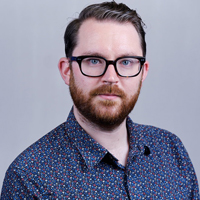
Nicky Dean, Nature Energy
Nicky Dean is the Chief Editor of Nature Energy. He joined Nature Research in July 2011 as an editor for Nature Communications, where he handled a broad range of manuscripts across applied and fundamental physics and photonics. He was also Team Manager for the physics and earth sciences team, before leaving to launch Nature Energy in April 2015. Nicky gained his DPhil from the University of Oxford, where he studied ultrafast dynamics in correlated electron materials.
Y. Shirley Meng, MRS Energy & Sustainability
Y. Shirley Meng is a professor of molecular engineering at the Pritzker School of Molecular Engineering. She also serves as the chief scientist of the Argonne Collaborative Center for Energy Storage Science (ACCESS) Argonne National Laboratory. Her work pioneers in discovering and designing better materials for energy storage by a unique combination of first-principles computation guided materials discovery and design, and advanced characterization with electron/neutron/photon sources. Meng is the principal investigator of the research group - Laboratory for Energy Storage and Conversion (LESC). She has received several prestigious awards, including the Faraday Medal of Royal Chemistry Society (2020), International Battery Association Battery IBA Research Award (2019), Blavatnik Awards for Young Scientists Finalist (2018), C.W. Tobias Young Investigator Award of the Electrochemical Society (2016), Science Award Electrochemistry by BASF and Volkswagen (2014) and NSF CAREER Award (2011). Meng is the elected fellow of Electrochemical Society (FECS) and elected fellow of Materials Research Society (FMRS). She serves as the editor-in-chief for MRS Energy & Sustainability Journal.
Speakers

Morgan Bazilian, Colorado School of Mines
Morgan Bazilian is the Director of the Payne Institute for Public Policy and Professor at the Colorado School of Mines. Previously, he was Lead Energy Specialist at the World Bank. Bazilian holds a PhD in energy systems, and was a Fulbright fellow. His work has been published in Science, Nature, Foreign Affairs, Foreign Policy, and Proceedings of the National Academy of Science. Previously he was a senior diplomat at the United Nations. He was the EU’s lead negotiator on technology at the UN climate negotiations. He is also Member of the Council on Foreign Relations, a Global Fellow at the Wilson Center, and a member of Ireland’s Climate Change Council.
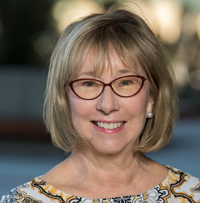
Sally Benson, White House Office of Science and Technology Policy
An internationally-recognized energy expert, Sally Benson serves as Deputy Director for Energy & Chief Strategist for the Energy Transition at OSTP. Trained as an earth scientist and engineer, she is an expert on wide variety of topics related to energy and the environment. For the past 25 years, she has focused on deep decarbonization of the global energy system. She comes to OSTP from Stanford University where she is the Precourt Family Professor of Energy Resources Engineering, in the School of Earth, Energy and Environmental Sciences. During her time at Stanford, she was also the Director of the Global Climate and Energy Project, a research program focused on discovering and developing new technologies for reducing carbon dioxide emissions from the energy system. Prior to joining Stanford University, she was at Lawrence Berkeley National Laboratory, where she held many positions, including Earth Sciences Division Director, Associate Laboratory Director for Energy Sciences, and Deputy Director for Operations. She has been a coordinating lead author for the Intergovernmental Panel on Climate Change (IPCC), and a member of several National Academies of Sciences studies related to energy and the environment, most recently the study on Negative Emissions Technologies and Reliable Sequestration.
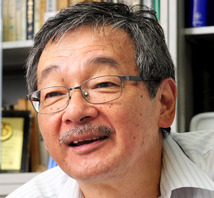
Kazunari Domen, The University of Tokyo and Shinshu University
Kazunari Domen received BS (1976), MS (1979), and PhD (1982) honors in chemistry from the University of Tokyo. Domen joined Chemical Resources Laboratory, Tokyo Institute of Technology in 1982 as Assistant Professor and was subsequently promoted to Associate Professor in 1990 and Professor in 1996. Moving to the University of Tokyo as Professor in 2004, and cross appointment with Shinshu University as Special Contract Professor in 2017, University Professor of the University of Tokyo in 2019. His research interests now include heterogeneous catalysis and materials chemistry, with particular focus on surface chemical reaction dynamics, photocatalysis, solid acid catalysis, and mesoporous materials.
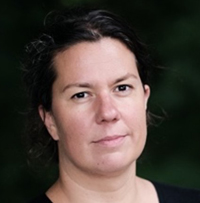
Alessandra Hool, ESM Foundation
Alessandra Hool (MSc) is the Managing Director of ESM Foundation, a Swiss Foundation for Rare Metals. ESM supports private sector and political actors in their decision-making on risks in the raw materials supply chain, and participates in projects to train specialists in identifying and limiting risks in the supply of critical raw materials for industrial processes. ESM connects experts at all levels of the value chain and shares this network with all interested parties. Hool has been coordinating various national, European and international initiatives on critical raw materials, such as the EIT RawMaterials education projects SusCritMat and SusScritMOOC on the sustainable management of critical raw materials (2017-2022) and the International Round Table on Materials Criticality IRTC (from 2017).
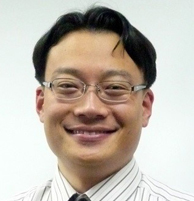
Min-Ha Lee, Korea Institute of Industrial Technology (KITECH) and University of Science and Technology (UST) Korea
Min-Ha Lee is the principal researcher of the Korea Institute of Industrial Technology (KITECH) and professor of University of Science and Technology (UST) Korea. Since 2010, he worked on development of governmental policy on rare metals and critical raw materials at the Korea Institute for Rare Metals (KIRAM). Prior to coming to KITECH, he worked as a Scientist at the Leibniz Institute for Solid State Materials Research Dresden (IFW Dresden) in Germany, and the Ames National Laboratory (US DOE) in the United States. Currently, he serves as a director of KITECH North America in the United States.
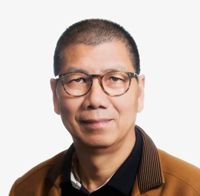
Jun Liu, University of Washington and Pacific Northwest National Laboratory
Jun Liu is a Washington Foundation Innovation Chair and Campbell Chair Professor at the University of Washington (UW) and a Battelle Fellow at the Pacific Northwest National Laboratory (PNNL). He also serves as the Director for Innovation Center for the Battery500 Consortium, a multi-institute national program funded by the Department of Energy to develop next generation batteries for electrification. Liu’s main research area is materials and systems for energy storage and conversation. He is recognized by PNNL’s Life-Time Achievement Award, Battery Division Technology Award from The Electrochemical Society (ECS), Distinguished Inventor of Battelle, PNNL's Inventor of the Year, two R&D100 Awards and the DOE EERE Exceptional Achievement Award. He is an elected member of Washington Academy of Science, a Materials Research Society (MRS) Fellow, an Electrochemical Society (ECS) Fellow, and an American Association for the Advancement of Science (AAAS) Fellow. He has been ranked as a highly cited researcher in the world in multiple areas.
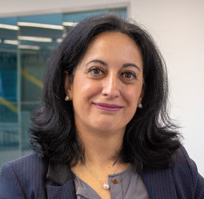
Mercedes Maroto-Valer, UK Industrial Decarbonisation Research and Innovation Centre (IDRIC); Research Centre for Carbon Solutions (RCCS) at Heriot-Watt University
Mercedes Maroto-Valer (FRSE, FIChemE, FRSC, FRSA, FEI) is Champion and Director of the UK Industrial Decarbonisation Research and Innovation Centre (IDRIC) focused on accelerating the transition to net zero of the UK industrial clusters and establishing the first world net-zero industrial cluster. Maroto-Valer is Deputy Principal (Global Sustainability) and Director of the Research Centre for Carbon Solutions (RCCS) at Heriot-Watt University. Her internationally recognised track record covers energy systems, CCUS, integration of hydrogen technologies and low-carbon fuels. She has over 550 publications, holds leading positions in professional societies and editorial boards and has received numerous international prizes and awards .
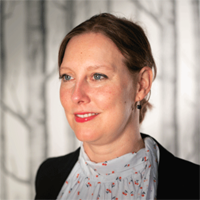
Jennifer Rupp, Technical University of Munich
Jennifer Rupp’s research broadly encompasses solid state materials for sustainable energy storage and conversion. Her research on batteries is currently centered on designing novel classes of Li solid state conductors, inventing cheap battery solid state synthesis routes for new hybrid and solid cell designs and defining cyber-physical battery synthesis and high throughput analytics. Other areas of research touch on the production of sustainable photo-generated fuels as well as implantable energy tech; she recently proposing with her team a first human-implantable fuel cell chip to convert glucose into electricity. She also enjoys exploring lithium-based devices beyond batteries, such as new “lithionic” concepts for energy-efficient neuromorphic computing opto-ionics and sensing. Most of her team’s activities are centered around green energy research and development, and Rupp maintains a strong emphasis on solving global problems through research.
